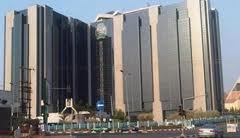
(Over 20 years investing experience in Nigeria’s financial markets)
The establishment of the Central Bank of Nigeria in 1959 provided an impetus for the development of a virile money market, because its enabling Act afforded it the statutory obligation for saving mobilization.
The promulgation of the Treasury bill ordinance in 1959 authorised the Central Bank:
- To issue monthly Treasury bill in multiples of N2000 on 91 days maturity at a fixed discounting rate. The interval of issuance was later reduced to fortnightly.
- To limit the issue to 10% of the estimated Federal government revenue for the financial year. This limit was progressively increased overtime.
- To accept subscription from the general public, but only through authorised dealers.
Treasury bills are government securities with a maturity period of 91 days, 182 days, nine months and one year and they are sold at a discount, from the maturity face value.
Government issues treasury bills to stimulate development of the money market and to raise short term funds for its programmes. Treasury bill was used by the government to finance the post civil war reconstructions and rehabilitation exercise between 1970 and 1973.
The major holders of treasury bills in Nigeria include Central bank, Commercial banks, Discount houses, Pension Fund Administrators, Insurance Companies, State Governments and individuals.
Treasury bills are risk free because the CBN will absorb all that could not be taken by other institutions. There is a strong secondary market for treasury bills, making it a very liquid form of investment.
These are the basic objectives for the issuance of treasury bill by Central Bank of Nigeria:
- To develop a local money market in the country.
- To stop the repatriation of short term funds into the London money market.
- To create domestic outlet for investment of short term fund in Nigeria.
- To provide an efficient regulation of the monetary and banking system and to provide for banks financial instruments for effective management of their resources.
The ideal place to invest our short term funds is in a money market instrument like treasury bill. Treasury bill has no fixed interest rate, although the current rate is between 10.5% and 11.5%. Treasury bill is usually issued at a discount.
When the government is in needs of short term funds, it issues treasury bills through the CBN to the public. Individuals and institutions with surplus cash over their immediate needs would subscribe for specific amount. Each application has to be fully paid for, at the fixed discount advertised.
Assuming treasury bill of N100,000 was issued at a discount of 11%, this means that an application for N100,000 would be accompanied with a cheque of N89,000, that is N100,000 less N11,000 (being 11% of N100,000). When the bill matures after 1 year, the holder would receive N100,000 from the CBN on surrender of the treasury bill.
An investor who invested N100,000 for 91 days at a discount of 11%, will pay N97,250( that is less N2750, which is ¼ of N11,000 ).
How can you invest in treasury bill?
You can invest in treasury bills through the following:
- Bank: talk to your account officer to assist you in investing in treasury bills. With as little as N100,000 your bank should be able to assist you. Unfortunately most bankers are not knowledgeable about treasury bill, and those who are knowledgeable about it may want to discourage you by telling you to invest a minimum of N2 million or above.
- If anybody encounters difficulties from his banks as per treasury bill investment, please feel free to get in touch with me through Jarus.
- Stock brokers: reputable stockbrokers help their clients to diversify their investment portfolio by helping them with investment in money market instruments.
- Discount house: Institutional investors like Pension Fund Administrtors, Insurance Companies, State Governments, Public Corporations and High Net-worth Individuals invest in treasury bills through discount houses. With a minimum of N5 million discount houses can help their clients to invest in treasury bills.
References
- Money, Banking and Economy in Nigeria by Patrick Osiegbu.
- Monetary Economic by Layi Afolabi.
………………………………………………………………………………………………………
Book for the month
Retire young, retire rich by Robert Kiyosaki
Memorable investment quote
Wall Street is the only place people ride in a Rolls Royce to get financial advice from people who take subway. – Warren Buffet
See also other investment articles by Emma
How to Reduce Housing Deficit in Nigeria
Established in March 2013, JarusHub is a Nigerian information hub with focus on career and management. It is rated Nigeria's most authoritative destination for online career resources. It parades an array of Nigerian professionals who share their career experiences with a view to bridging career information gap and mentoring a generation to success. Whether you're a student, a recent graduate or an established professional, or even an executive, you will always find something to learn on JarusHub. All enquiries to jarushub@gmail.com or 0808 540 4500. Facebook: www.facebook.com/jarushub; Twitter: @jarushub or @mcjarus.
Attend JarusHub’s 2024 Seplat Assessment Center Coaching
October 29, 2024
2 comments
Let us have your say by leaving a comment belowCancel reply
Recommended For You
-
FEMI TAIWO: Secrets of Winning at Work (IV) – Standardize
April 14, 2015 -
NNPC Invites for Computer Based Aptitude Test
May 22, 2019









Just found out that about 3 discount houses can allow one to invest N2 million on treasury bills, but the other one will not accept anything less than N5 million from investors.
[…] Investing in Treasury Bill […]